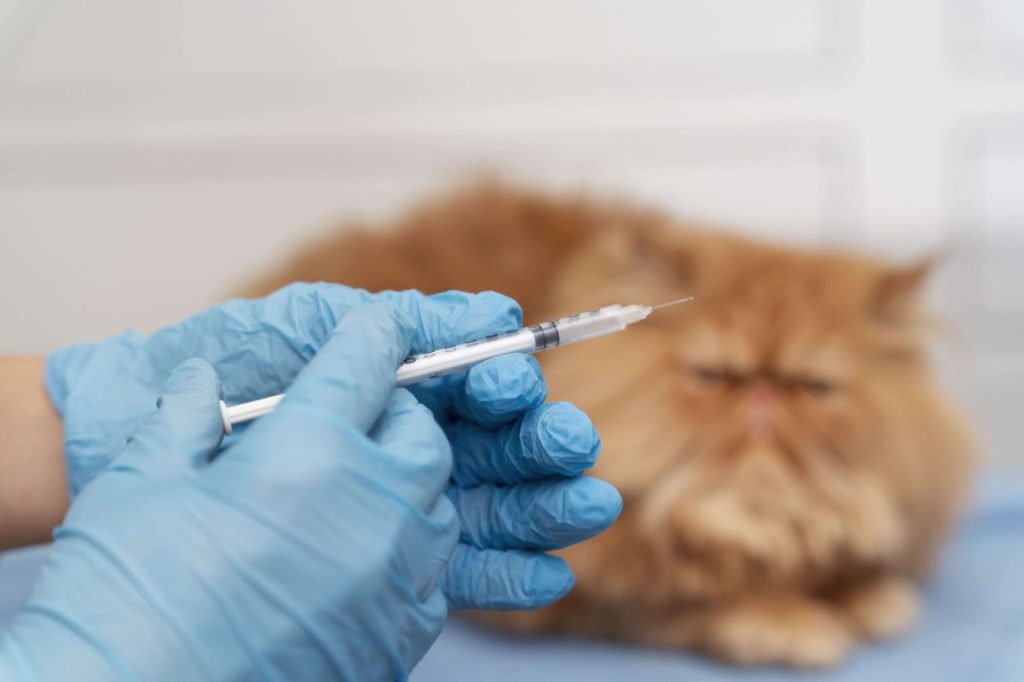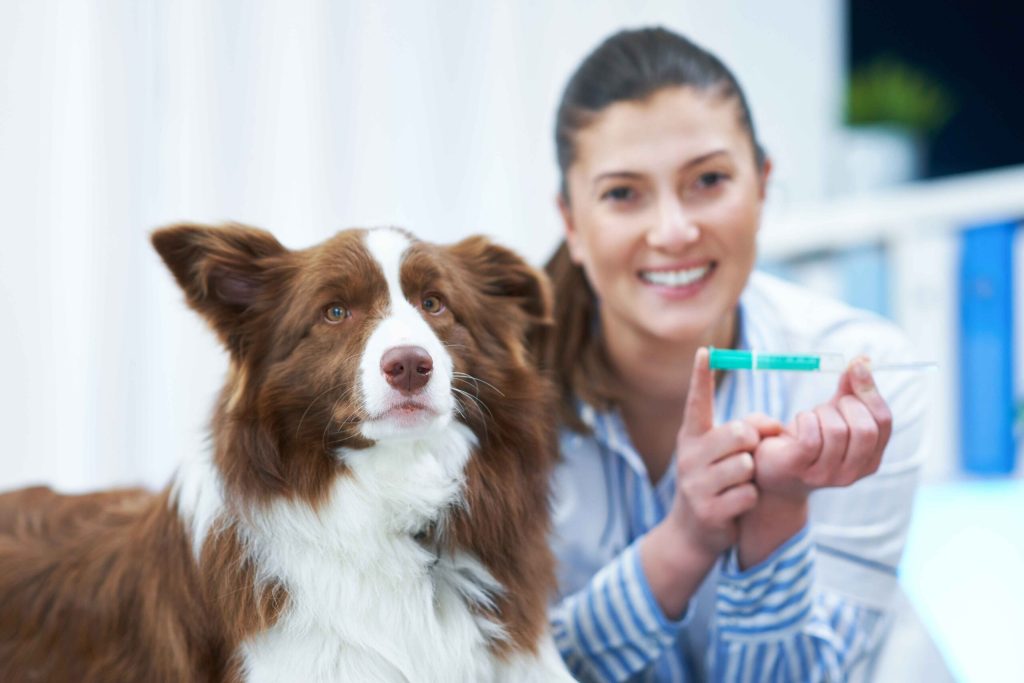Why Keeping Your Pets Vaccines Up-to-Date Is Crucial for Health

The Role of Vaccinations in Pet Health and Community Well-Being
As loving companions, our pets depend on us to keep them safe and healthy. Regular vaccinations expose them to fewer risks and help maintain a high quality of life. The significance of pet vaccinations cannot be overstated; it impacts not just individual animals but the entire ecosystem of pets around them.
When it comes to safeguarding your pet, it is crucial to understand the fundamental reasons why adhering to a vaccination schedule is essential:
- Prevention of Serious Diseases: Vaccines are designed to protect pets from a myriad of diseases, including potentially fatal conditions like rabies, parvovirus, and distemper. For instance, parvovirus can cause severe gastrointestinal issues in dogs, often resulting in death if untreated. Vaccination programs have effectively reduced the prevalence of such diseases, making it imperative for pet owners to ensure that their furry friends receive timely vaccinations.
- Community Health: Maintaining high vaccination rates among pets contributes to the concept of herd immunity. This is crucial because many contagious diseases can spread quickly within animal populations. When a significant number of pets are vaccinated, it creates a buffer that protects both vaccinated and unvaccinated animals in the community. For example, the spread of rabies, a zoonotic disease transmissible to humans, is significantly reduced when vaccination rates among dogs and cats remain high.
- Cost-Effectiveness: Investing in vaccinations can save pet owners substantial amounts of money in the long run. The costs associated with treating a pet infected with a vaccine-preventable disease can far exceed the expenses of routine vaccinations. In the case of feline leukemia or canine cough, treatment can range from hundreds to thousands of dollars, whereas vaccination costs are generally much lower, making it a financially responsible choice for pet owners.
Neglecting vaccinations can lead to serious health complications for pets. Additionally, in some states and municipalities, failure to vaccinate against rabies can lead to legal repercussions. For example, many areas require proof of rabies vaccination to legally license pets. Frequent outbreaks, such as distemper resurgence in unvaccinated populations, highlight the urgent need for ongoing vaccination awareness.
As pet owners, it is our responsibility to prioritize our pets’ health by keeping their vaccinations up to date. Understanding the implications of immunizations not only secures a healthier lifestyle for our furry companions but also fosters a healthier community overall. It is vital to consult a veterinarian to discuss which vaccinations are necessary for your pet based on their age, health status, and lifestyle. Collectively, our informed decisions can have a profound impact on the health and well-being of pets everywhere. Keeping our furry friends safe today ensures a better tomorrow for all.
CHECK OUT: Click here to explore more


The Importance of Staying Current with Pet Vaccinations
In the ever-evolving world of veterinary medicine, the relevance of timely pet vaccinations remains a cornerstone of responsible pet ownership. These vaccinations are not merely a routine procedure; they serve as a critical line of defense against a wide array of infectious diseases that can afflict our beloved companions. Understanding the vital need to keep your pet’s vaccinations up-to-date is essential in ensuring their overall health and welfare.
To further illustrate this point, let’s delve into some key aspects that highlight why pet vaccination schedules must not be overlooked:
- Protection Against Virulent Pathogens: Certain diseases, such as canine parvovirus and feline panleukopenia, are notorious for their lethality and rapid spread. These vaccines not only boost individual immunity but also ensure that fewer animals contract these diseases. For example, the incidence of parvovirus has significantly declined due to high vaccination rates, demonstrating the critical role vaccines play in safeguarding pet populations.
- Travel and Socialization Considerations: For pet owners who travel or engage in communal activities such as dog parks or pet daycare centers, keeping vaccines current is often a requirement. Many locations mandate proof of vaccinations for entry, ensuring a safe environment for both pets and their owners. Furthermore, participating in dog shows, competitions, or even pet training classes typically requires up-to-date immunizations to avert disease outbreaks.
- Age-Related Vulnerabilities: As pets age, their immune systems may weaken, making them more susceptible to infections. Fear of diseases shouldn’t wane as pets transition into their senior years. Proactively vaccinating can help extend their longevity and improve quality of life, countering the health risks associated with age-related decline.
- Legislative Requirements: Compliance with local laws is yet another driving factor in the need for vaccinations. Many states and municipalities necessitate proof of rabies vaccination for pet licensing and may impose fines for non-compliance. Familiarizing oneself with local regulations can help avert potential legal challenges while protecting public health.
Additionally, when we consider the broader implications of vaccinations, it becomes evident that they contribute to a safer community for both pets and humans. Diseases such as leptospirosis and rabies are zoonotic, meaning they can be transmitted from animals to humans. By ensuring pets are adequately protected through vaccinations, pet owners help mitigate the risk of outbreaks and safeguard the health of their families and neighborhoods.
In essence, the necessity of maintaining a current vaccination schedule is not simply an option—it is a crucial obligation that benefits not only our pets but also serves to uphold public health standards. Engaging with a veterinarian to tailor an appropriate vaccination plan remains paramount. When pet owners make informed decisions regarding vaccinations, they partake in a collective effort to cultivate a thriving environment for all species.
| Advantage | Details |
|---|---|
| Prevention of Diseases | Vaccines protect your pets from serious diseases such as rabies, parvovirus, and distemper, which can be life-threatening. |
| Community Health Safety | Vaccinating pets contributes to herd immunity, reducing the chances of outbreaks in both animals and humans. |
| Cost-Effectiveness | Preventing diseases through vaccination is often less expensive than treating them, which can be financially burdensome. |
| Enhanced Longevity | Healthy pets tend to live longer lives, enhancing the emotional bond between owners and their furry companions. |
Vaccinating your pets not only safeguards their health but also provides peace of mind for pet owners. The process is straightforward and frequently coordinated with regular veterinary visits, making it an essential aspect of pet care. Ensuring that your pet’s vaccinations are up-to-date helps create a safer environment for both pet and human family members, reflecting a commitment to responsible pet ownership. By choosing to keep your pet vaccinated, you are making **a proactive decision** for their health and well-being, which opens up new avenues for a blissful and active life together. Remember, staying informed about vaccination schedules and requirements is a critical step towards achieving optimal health for your beloved pets.
CHECK OUT: Click here to explore more
Five Key Benefits of Keeping Vaccinations Up-to-Date
While we have explored the mandatory and protective aspects of vaccination, the multifaceted benefits extend far beyond mere compliance and individual health. Vaccination serves as a comprehensive tool with several far-reaching advantages for both pets and their environments. Let us unravel these key benefits:
- Herd Immunity: The concept of herd immunity emphasizes the importance of a significant percentage of a population being immunized to protect those who cannot be vaccinated, such as very young or immunocompromised animals. When pets are vaccinated en masse, the spread of infectious diseases diminishes, creating a barrier that safeguards vulnerable members of the community. This collective approach also fortifies public health efforts, minimizing the overall prevalence of zoonotic diseases that can impact humans.
- Cost-effectiveness: The financial implications of preventing diseases far outweigh the costs associated with vaccinations. Treating a pet for a serious illness can lead to exorbitant veterinary bills, extended treatments, or in severe cases, euthanasia. Vaccination serves as a proactive investment in your pet’s health, ensuring they stay protected for a relatively minimal cost. Moreover, some veterinary clinics offer package deals for combined vaccines, leading to further savings for pet owners.
- Maintaining a Balanced Ecosystem: Vaccination is critical to preserving the ecosystem of pet populations. Outbreaks of diseases such as kennel cough can lead to significant disruptions not only for pet owners but also for various pet services and facilities. When pets are equipped with appropriate vaccinations, they contribute to a more stable interaction within their environments, allowing human and animal communities to thrive harmoniously.
- Assurance of Quality Care: Regular veterinary visits for vaccinations facilitate a comprehensive approach to health care. These appointments allow veterinary professionals to engage in preventive health discussions, assess lifestyle factors, and conduct thorough check-ups to identify potential health issues in their infancy. Such proactive care leads to enhanced overall well-being, as veterinarians can also recommend lifestyle adjustments tailored to each pet’s specific needs.
- Encouragement for Responsible Pet Ownership: Consistently updating vaccinations not only protects individual pets but also fosters a culture of responsibility amongst pet owners. When people see others caring for their pets diligently, it encourages collective awareness about pet healthcare. This cultural shift can lead to more responsible practices, creating an environment where pet welfare is prioritized, ultimately resulting in healthier communities.
These benefits illuminate the undeniable advantages of maintaining up-to-date vaccinations for pets. The potential for cost savings, community health improvement, and responsible pet ownership is significant. By investing in the health of pets through timely vaccinations, pet owners contribute to a holistic approach that intertwines individual pet well-being with communal health.
As the veterinary landscape evolves, it is crucial to stay informed. Research continues to emerge about the efficacy of vaccines and potential updates to vaccination protocols. Regular consultations with veterinarians will ensure that pet owners have access to the latest information regarding their pets’ health, ultimately fostering proactive healthcare decisions.
SEE ALSO: Click here to read another article
Final Thoughts on the Vital Importance of Pet Vaccinations
In summary, the importance of keeping your pets’ vaccines up-to-date cannot be overstated. It is a practice that offers protection against serious health threats not just for pets, but also for their human companions and wider communities. As we’ve seen, the concept of herd immunity highlights how widespread vaccination can shield the most vulnerable members of both animal and human populations. By ensuring vaccinations are current, pet owners are actively taking part in a broader public health initiative.
Moreover, the financial advantages associated with preventive care underscore the wisdom of investing in vaccines. The potential costs incurred from treating preventable diseases far exceed the minimal expense of timely vaccinations. This proactive approach to pet care enhances quality of life, making it an integral aspect of responsible pet ownership.
As pet owners, staying informed about evolving veterinary guidelines is essential in maximizing your pet’s health. Having regular discussions with your veterinarian can provide updates on vaccination protocols and personalized recommendations that cater to your pet’s lifestyle. Such engagement forms a strong foundation for making informed decisions.
Ultimately, the act of keeping your pet’s vaccinations current reflects a commitment to their well-being and a recognition of the interconnectedness within our communities. By prioritizing vaccine maintenance, we not only safeguard our beloved pets but also contribute to a healthier future for all. It is a small step that can yield significant benefits, ensuring a fulfilling life for both pets and their families.


